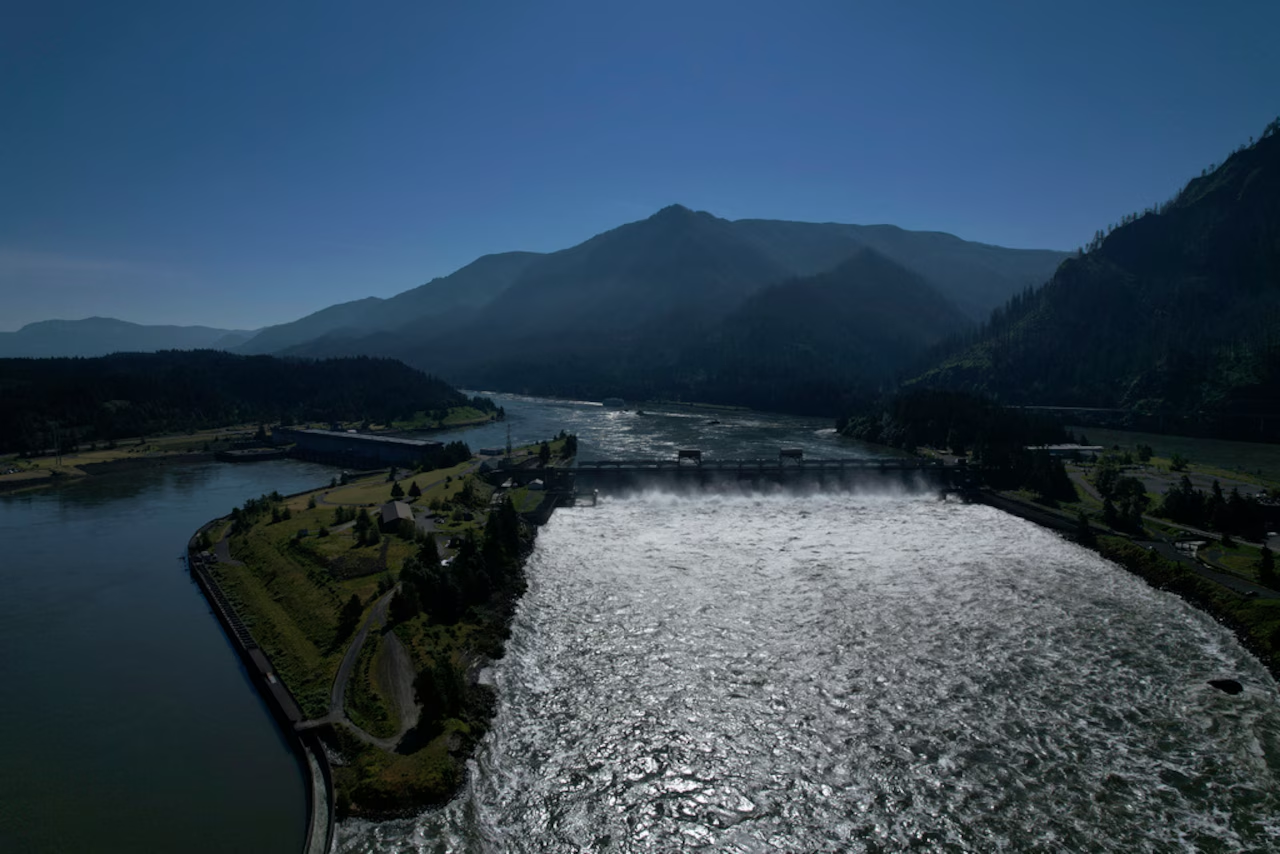SALEM, Ore. – Oregon is back in court, reviving a yearslong legal fight against the federal government after the Trump administration abruptly withdrew from a landmark agreement to restore salmon and steelhead runs in the Columbia River Basin.
Agreement Undone
The Resilient Columbia Basin Agreement, signed in 2023, was hailed as a breakthrough that ended decades of litigation between states, tribes, and conservationists over declining salmon populations. It pledged more than $1 billion for fish restoration and clean energy projects, while formally acknowledging the devastation federal dams have caused.
Key provisions included adjusting dam operations to aid salmon passage and considering the controversial breaching of four Snake River dams. Importantly, the agreement also recognized treaty obligations to Native nations and promised investments in tribal clean energy.
Also Read
But in June 2025, President Donald Trump issued a memorandum titled “Stopping Radical Environmentalism to Generate Power for the Columbia River Basin”, ordering federal agencies to pull out of the pact without explanation.
Oregon Takes Action
On Thursday, Oregon filed motions asking a federal judge to reopen earlier litigation and grant an injunction to block the administration’s withdrawal. The state is seeking to preserve some operational changes to the hydropower system that improve fish survival during their spring downstream migration.
“These measures maximize the salmon’s chance of survival and return as adults,” the state argued in court documents.
Attorney General Dan Rayfield condemned the federal retreat:
“The Resilient Columbia Basin Agreement was a historic opportunity to restore salmon populations, uphold commitments to sovereign tribal nations, and meet our region’s clean energy demands. By walking away, the federal government has put salmon and steelhead on the brink of extinction and once again broken promises to tribal partners.”
Salmon on the Brink
The Columbia River Basin once supported 10 to 16 million salmon and steelhead annually. Today, more than a third of those runs are extinct, and many remaining stocks hover on the edge of collapse.
-
Of the 16 salmon and steelhead stocks that historically returned above Bonneville Dam, four are extinct.
-
More than half of the survivors are now listed under the Endangered Species Act.
-
In some rivers, fewer than 50 wild fish return to spawn.
The agreement had been viewed as a turning point, offering tribes, conservationists, and local communities a path forward after decades of lawsuits and stalled negotiations.
Broken Promises to Tribes
The withdrawal particularly affects the four Lower Columbia Treaty tribes, who were central to the agreement. For years, tribal leaders have argued that federal dams not only destroyed fish runs but also violated treaty rights guaranteeing access to salmon.
The pact pledged to uphold those obligations and support tribal-led renewable energy projects. Its collapse revives longstanding grievances over broken promises.
State Leaders Push Back
Gov. Tina Kotek vowed Oregon would continue to work alongside Washington and tribal nations despite the federal government’s reversal.
“Oregon remains committed to working with Washington and tribal partners to pursue healthy salmon runs and a clean energy future, while urging the federal government to rejoin the effort,” Kotek said in a statement.
Environmental groups are also expected to reenter the legal fight, while Washington state officials have signaled support for Oregon’s actions.
What’s at Stake
Without the agreement, fish advocates fear the basin will slide back into cycles of litigation and political stalemate, leaving salmon recovery uncertain. Meanwhile, hydropower operations face growing scrutiny as climate change and dwindling fish runs intensify pressure to reform the system.
For Oregon, the legal challenge is about more than fish: it’s about treaty rights, ecological survival, and balancing clean energy with cultural and environmental obligations.
The case now heads back into federal court, where Oregon will argue that the Trump administration’s decision not only undermines years of negotiations but also pushes Columbia Basin salmon closer to extinction.












